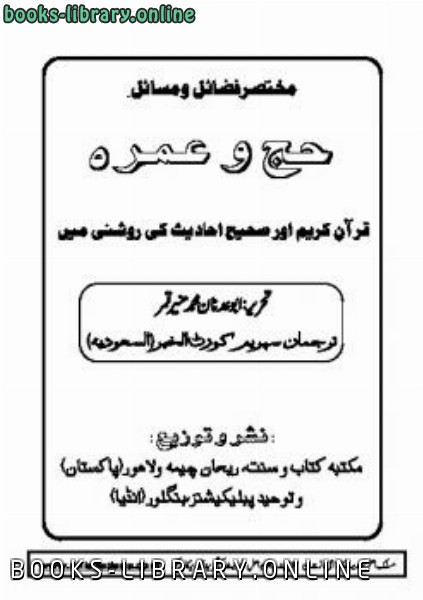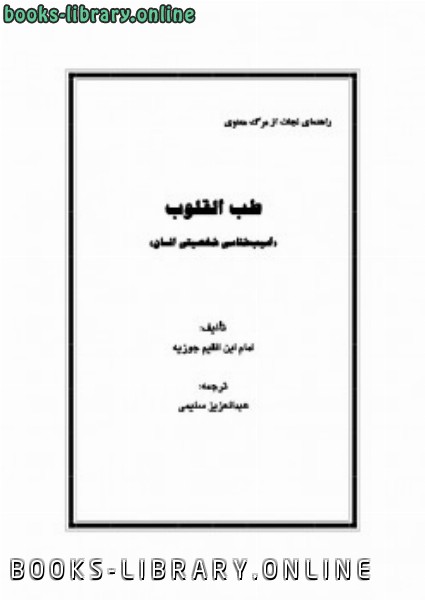كتاب The Month of Safar
Praise be to Allaah, and blessings and peace be upon the Messenger of Allaah. The month of Safar is one of the twelve Hijri months, and it is the month which comes after Muharram. Some of the (scholars) said that it is so named because of the emptying (isfaar) of Makkah (i.e., its people would all leave) when they traveled during this month. It was also said that this month is named Safar because they used to raid other tribes at this time, and they would leave those whom they encountered bereft of their possessions (sifran min al-mataa’) – i.e., they would take all their belongings away and they would leave them with nothing. (See Lisaan al-‘Arab by Ibn al-Mandhoor, part 4, p. 462-463) Our discussion of this month will cover the following points: 1. What has been narrated concerning it from the Arabs of the Jaahiliyyah. 2. What has been narrated in Islam that contradicts the views of people of the Jaahiliyyah concerning this month. 3. Innovations and corrupt beliefs concerning this month that exist among people who claim to be Muslims. 4. What happened in this month of military campaigns and important events in the life of the Prophet (peace and bless- ings of Allaah be upon him). 5. False ahaadeeth that have been narrated concerning Sa- far. 1. What has been narrated concerning it from the Arabs of the Jaahiliyyah. The Arabs were guilty of two serious wrongdoings concerning the month of Safar. Firstly, they played about with it, making it earlier than it actually was or postponing it, and secondly, they had supersti- tions concerning it. (1) It is known that Allaah created the year and the number of its months is twelve, four of which Allaah has made sacred, in which it was forbidden to fight, out of respect for these months. These months are: Dhu’l-Qa’dah, Dhu’l-Hijjah, Muharram and Rajab. This is confirmed in the Book of Allaah, where Allaah says (interpre- tation of the meaning): “Verily, the number of months with Allaah is twelve months (in a year), so was it ordained by Allaah on the Day when He created the heavens and the earth; of them four are Sacred (i.e. the 1st, the 7th, the 11th and the 12th months of the Islamic calendar). That is the right religion, so wrong not yourselves therein...” [al-Tawbah 9:36] The mushrikeen were aware of that, but they used to postpone it or make it earlier according to their whims and desires, such as putting Safar in place of Muharram! They used to believe that ‘Umrah during the months of Hajj was one of the most evil of actions. There follow some of the comments of the scholars on that. (a) It was narrated that Ibn ‘Abbaas () said: “They used to think that ‘Umrah during the months of Hajj was one of the most evil of actions on earth. They would make Muharram Safar, and they used to say, ‘When the wounds of the camel's back heal up (after they in Jahiliyyah and in Islam.محمد صالح المنجد - «محمد صالح» المنجد (13 يونيو 1961 -) (30 ذو الحجة 1380 هـ -) فقيه وداعية سوري من أصل فلسطيني مُقيم في السعودية، ولد لأبوين فلسطينيين لاجئين في سوريا، ثم سافر أهله إلى السعودية فنشأ وترعرع هناك حتى نال درجة البكالوريوس من جامعة الملك فهد للبترول والمعادن. ❰ له مجموعة من الإنجازات والمؤلفات أبرزها ❞ ظاهرة ضعف الإيمان الأعراض الأسباب العلاج ❝ ❞ كيف عاملهم صلى الله عليه وسلم ❝ ❞ كيف تقرأ كتابا؟ ❝ ❞ مفسدات القلوب: النفاق ❝ ❞ اترك أثرا قبل الرحيل ❝ ❞ 70 مسألة في أحكام الصيام ❝ ❞ أعمال القلوب: التقوى ❝ ❞ أحداث مثيرة فى حياة الشيخ العلامة الألبانى ❝ ❞ Pojava slabljenja imana simptomi uzroci i liječenje ❝ الناشرين : ❞ موقع دار الإسلام ❝ ❞ العبيكان للنشر ❝ ❞ دار الإسلام للنشر والتوزيع ❝ ❞ دار الوطن للطباعة والنشر والتوزيع - السعودية ❝ ❞ دار الوطن للطباعة والنشر والعلاقات العامة ❝ ❞ مدار الوطن للنشر ❝ ❞ دار الإيمان للطبع والنشر والتوزيع ❝ ❞ مكتب الدعوة بالربوة ❝ ❞ مجموعة زاد للنشر ❝ ❞ شركة سفير ❝ ❞ مكتبة السنة ❝ ❱
من كتب إسلامية بلغات أخرى - مكتبة كتب إسلامية.

قراءة كتاب The Month of Safar أونلاين
معلومات عن كتاب The Month of Safar:
of Allaah.
The month of Safar is one of the twelve Hijri months, and it is the
month which comes after Muharram. Some of the (scholars) said
that it is so named because of the emptying (isfaar) of Makkah (i.e.,
its people would all leave) when they traveled during this month. It
was also said that this month is named Safar because they used to
raid other tribes at this time, and they would leave those whom they
encountered bereft of their possessions (sifran min al-mataa’) – i.e.,
they would take all their belongings away and they would leave them
with nothing. (See Lisaan al-‘Arab by Ibn al-Mandhoor, part 4, p.
462-463)
Our discussion of this month will cover the following points:
1. What has been narrated concerning it from the Arabs of
the Jaahiliyyah.
2. What has been narrated in Islam that contradicts the
views of people of the Jaahiliyyah concerning this month.
3. Innovations and corrupt beliefs concerning this month
that exist among people who claim to be Muslims.
4. What happened in this month of military campaigns and
important events in the life of the Prophet (peace and bless-
ings of Allaah be upon him).
5. False ahaadeeth that have been narrated concerning Sa-
far.
1. What has been narrated concerning it from the Arabs of
the Jaahiliyyah.
The Arabs were guilty of two serious wrongdoings concerning the
month of Safar. Firstly, they played about with it, making it earlier
than it actually was or postponing it, and secondly, they had supersti-
tions concerning it.
(1) It is known that Allaah created the year and the number of its
months is twelve, four of which Allaah has made sacred, in which it
was forbidden to fight, out of respect for these months. These months
are: Dhu’l-Qa’dah, Dhu’l-Hijjah, Muharram and Rajab.
This is confirmed in the Book of Allaah, where Allaah says (interpre-
tation of the meaning):
“Verily, the number of months with Allaah is twelve
months (in a year), so was it ordained by Allaah on
the Day when He created the heavens and the earth;
of them four are Sacred (i.e. the 1st, the 7th, the 11th
and the 12th months of the Islamic calendar). That is
the right religion, so wrong not yourselves therein...”
[al-Tawbah 9:36]
The mushrikeen were aware of that, but they used to postpone it or
make it earlier according to their whims and desires, such as putting
Safar in place of Muharram!
They used to believe that ‘Umrah during the months of Hajj was one
of the most evil of actions. There follow some of the comments of the
scholars on that.
(a) It was narrated that Ibn ‘Abbaas () said:
“They used to think that ‘Umrah during the months of
Hajj was one of the most evil of actions on earth. They
would make Muharram Safar, and they used to say,
‘When the wounds of the camel's back heal up (after they
in Jahiliyyah and in Islam.
للكاتب/المؤلف : محمد صالح المنجد .
دار النشر : .
عدد مرات التحميل : 4243 مرّة / مرات.
تم اضافته في : الأربعاء , 27 مارس 2019م.
حجم الكتاب عند التحميل : 135.5 كيلوبايت .
تعليقات ومناقشات حول الكتاب:
Praise be to Allaah, and blessings and peace be upon the Messenger
of Allaah.
The month of Safar is one of the twelve Hijri months, and it is the
month which comes after Muharram. Some of the (scholars) said
that it is so named because of the emptying (isfaar) of Makkah (i.e.,
its people would all leave) when they traveled during this month. It
was also said that this month is named Safar because they used to
raid other tribes at this time, and they would leave those whom they
encountered bereft of their possessions (sifran min al-mataa’) – i.e.,
they would take all their belongings away and they would leave them
with nothing. (See Lisaan al-‘Arab by Ibn al-Mandhoor, part 4, p.
462-463)
Our discussion of this month will cover the following points:
1. What has been narrated concerning it from the Arabs of
the Jaahiliyyah.
2. What has been narrated in Islam that contradicts the
views of people of the Jaahiliyyah concerning this month.
3. Innovations and corrupt beliefs concerning this month
that exist among people who claim to be Muslims.
4. What happened in this month of military campaigns and
important events in the life of the Prophet (peace and bless-
ings of Allaah be upon him).
5. False ahaadeeth that have been narrated concerning Sa-
far.
___________________________________
1. What has been narrated concerning it from the Arabs of
the Jaahiliyyah.
The Arabs were guilty of two serious wrongdoings concerning the
month of Safar. Firstly, they played about with it, making it earlier
than it actually was or postponing it, and secondly, they had supersti-
tions concerning it.
(1) It is known that Allaah created the year and the number of its
months is twelve, four of which Allaah has made sacred, in which it
was forbidden to fight, out of respect for these months. These months
are: Dhu’l-Qa’dah, Dhu’l-Hijjah, Muharram and Rajab.
This is confirmed in the Book of Allaah, where Allaah says (interpre-
tation of the meaning):
“Verily, the number of months with Allaah is twelve
months (in a year), so was it ordained by Allaah on
the Day when He created the heavens and the earth;
of them four are Sacred (i.e. the 1st, the 7th, the 11th
and the 12th months of the Islamic calendar). That is
the right religion, so wrong not yourselves therein...”
[al-Tawbah 9:36]
The mushrikeen were aware of that, but they used to postpone it or
make it earlier according to their whims and desires, such as putting
Safar in place of Muharram!
They used to believe that ‘Umrah during the months of Hajj was one
of the most evil of actions. There follow some of the comments of the
scholars on that.
(a) It was narrated that Ibn ‘Abbaas () said:
“They used to think that ‘Umrah during the months of
Hajj was one of the most evil of actions on earth. They
would make Muharram Safar, and they used to say,
‘When the wounds of the camel's back heal up (after they
return from Hajj) and the footprints of the camels va-
nish and the month of Safar passes away then (at that
time) ‘Umrah is permissible for the one who wishes to
perform it.” (Narrated by al-Bukhaari, 1489; Muslim, 1240)
(b) Ibn al-‘Arabi said: “The second issue: how postponing (al-nasee')
was done:
(i) It was narrated from Ibn ‘Abbaas that Junaadah ibn ‘Awf ibn
Umayyah al-Kinaani used to come on this occasion each year, and
he would call out that no one could criticize Abu Thumaamah or
reject what he said, and that Safar in the first year would not be
sacred, then we would make it sacred one year and not the next
year. They were with Hawaazin, Ghatafaan and Bani Sulaym. Ac-
cording to another version, he used to say, “We have brought Mu-
harram forward and postponed Safar.” Then the next year he
would say, “We will make Safar sacred and delay Muharram.” This
was the postponement.
(ii) Adding. Qataadah said: Some of the people of misguidance
deliberately added Safar to the sacred months. Their spokesman
would stand up on this occasion and say, “Your gods have made
Muharram sacred this year,” and they would regard it as sacred
that year. Then the next year he would stand up and say, “Your
gods have made Safar sacred,” so they would regard it as sacred
that year. And they would say (that there were) two Safars. Ibn
Wahb and Ibn al-Qaasim narrated something similar from Maalik,
who said: the people of the Jaahiliyyah used to have two Safars,
hence the Prophet () said, “(There is) no Safar.” Ash-hab also
narrated something similar from him.
(iii) Changing the time of Hajj. Mujaahid said with a different
isnaad:
“ ‘The postponing (of a Sacred Month) is indeed an
addition to disbelief...’
[at-Tawbah 9:37 ]
... they would perform Hajj in Dhu’l-Hijjah for two years, then they
would perform Hajj in Muharram for two years, then they would
perform Hajj in Safar for two years. They would perform Hajj in
each month for two years until, when Abu Bakr performed Hajj
that was in Dhu’l-Qa’dah, then when the Prophet performed Hajj
it was in Dhu’l-Hijjah. Hence the Prophet () said in his sermon,
according to the saheeh hadeeth:
“Time has completed a cycle and assumed the form of
the day Allaah created the heavens and the earth.”
Narrated by Ibn ‘Abbaas and others.
This version was narrated by him. And he said: “The Messenger of
Allaah () said:
‘O people, listen to what I say, for I do not know
whether I will meet you again after this day in this
place. O people, your blood and your wealth are sa-
cred until the Day when you meet your Lord, as sa-
cred as this day of yours in this month of yours in this
land of your. You will meet your Lord and He will
question you about your deeds. I have conveyed (the
message). Whoever has had something entrusted to
him, let him fulfil that trust.
All riba is abolished. You shall have your capital
sums, deal not unjustly and you shall not be dealt
with unjustly. Allaah decreed that there should be no
riba. The riba of ‘Abbaas ibn ‘Abd al-Muttalib is ab-
olished. All claims for blood-vengeance belonging to
the jaahiliyyah period have been abolished. The first
of those murdered among us whose blood-vengeance
I remit is Ibn Rabee’ah ibn al-Haarith ibn ‘Abd al-
Muttalib, who was suckled among Banu Layth and
killed by Hudhayl.”
He was the first one whose blood-vengeance of the jaahiliyyah was
abolished.
“O people, the Shaytaan has despaired of ever being
worshipped in your land, but he will be pleased to be
obeyed in any matter other than that, in matters that
you may think of as insignificant. So beware of him in
matters of your religion. The postponing (of a Sacred
Month) is indeed an addition to disbelief, by which
the disbelievers are led astray... Time has completed a
cycle and assumed the form of the day Allaah created
the heavens and the earth. The number of months
with Allaah is twelve, of which four are sacred, three
consecutive months, and Rajab Mudar which comes
between Jumaada and Sha’baan...”
...and he mentioned the rest of the hadeeth. (Ahkaam al-Qur`aan,
2/503-504)
(2) With regard to superstitions concerning the month of Safar,
these were well known among the people of the Jaahiliyyah, and still
exist among some of those who claim to be Muslims.
It was narrated that Abu Hurayrah said: the Messenger of Allaah ()
said:
“(There is) no ‘Adwa (no contagious disease is conveyed
without Allah's permission), nor is there any tiyarah or
Haamah (bad omens from birds), nor is there any (bad
omen in the month of) Safar, and one should run away
from the leper as one runs away from a lion.” (Narrated by
al-Bukhaari, 5387; Muslim, 2220)
Shaykh Ibn ‘Uthaymeen (may Allaah have mercy on him) said: “The
word ‘Safar’ was interpreted in several ways:
(i) that it refers to the well-known month of Safar, concerning
which the Arabs were superstitious.
(ii) That it refers to a stomach disease of camels, which is passed
from one camel to another, and that this mentioned in conjunc-
in Jahiliyyah and in Islam.
 مهلاً !
مهلاً !قبل تحميل الكتاب .. يجب ان يتوفر لديكم برنامج تشغيل وقراءة ملفات pdf
يمكن تحميلة من هنا 'تحميل البرنامج'

نوع الكتاب : pdf.
اذا اعجبك الكتاب فضلاً اضغط على أعجبني و يمكنك تحميله من هنا:


كتب اخرى في كتب إسلامية بلغات أخرى

women finally on the shore of islam من كلمات المسلمات الجديدات PDF
قراءة و تحميل كتاب women finally on the shore of islam من كلمات المسلمات الجديدات PDF مجانا
History of the Translation of the Meanings of the Qur’an in Germany up to the Year 2000: A Bibliographic Survey PDF
قراءة و تحميل كتاب History of the Translation of the Meanings of the Qur’an in Germany up to the Year 2000: A Bibliographic Survey PDF مجانا

Žene iz vremena poslanstva Muhammeda PDF
قراءة و تحميل كتاب Žene iz vremena poslanstva Muhammeda PDF مجانا

مختصرفضائل ومسائلِ حج وعمرہ قرآن اور صحيح احاديث کی روشنی میں PDF
قراءة و تحميل كتاب مختصرفضائل ومسائلِ حج وعمرہ قرآن اور صحيح احاديث کی روشنی میں PDF مجانا




